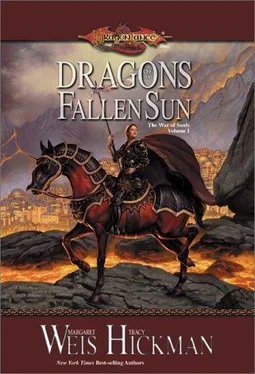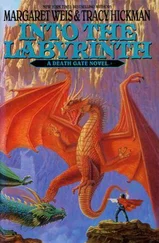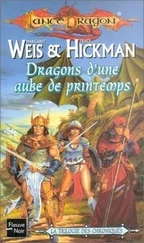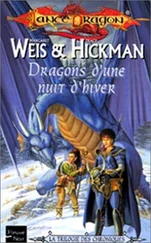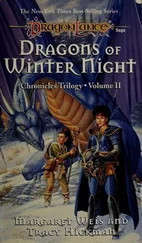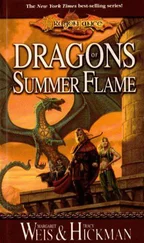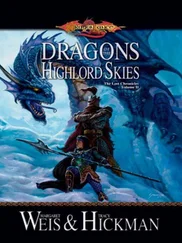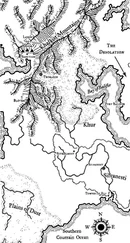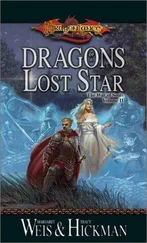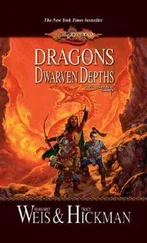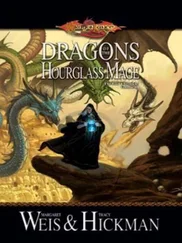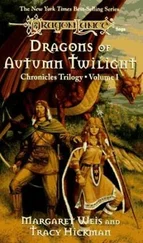Margaret Weis - Dragons of the Fallen Sun
Здесь есть возможность читать онлайн «Margaret Weis - Dragons of the Fallen Sun» весь текст электронной книги совершенно бесплатно (целиком полную версию без сокращений). В некоторых случаях можно слушать аудио, скачать через торрент в формате fb2 и присутствует краткое содержание. Жанр: Фэнтези, на английском языке. Описание произведения, (предисловие) а так же отзывы посетителей доступны на портале библиотеки ЛибКат.
- Название:Dragons of the Fallen Sun
- Автор:
- Жанр:
- Год:неизвестен
- ISBN:нет данных
- Рейтинг книги:4 / 5. Голосов: 1
-
Избранное:Добавить в избранное
- Отзывы:
-
Ваша оценка:
- 80
- 1
- 2
- 3
- 4
- 5
Dragons of the Fallen Sun: краткое содержание, описание и аннотация
Предлагаем к чтению аннотацию, описание, краткое содержание или предисловие (зависит от того, что написал сам автор книги «Dragons of the Fallen Sun»). Если вы не нашли необходимую информацию о книге — напишите в комментариях, мы постараемся отыскать её.
Dragons of the Fallen Sun — читать онлайн бесплатно полную книгу (весь текст) целиком
Ниже представлен текст книги, разбитый по страницам. Система сохранения места последней прочитанной страницы, позволяет с удобством читать онлайн бесплатно книгу «Dragons of the Fallen Sun», без необходимости каждый раз заново искать на чём Вы остановились. Поставьте закладку, и сможете в любой момент перейти на страницу, на которой закончили чтение.
Интервал:
Закладка:
Trees burned, houses were torn apart by the fierce winds.
The Than-thalas River flooded, sending those who lived on its banks scrambling to reach higher ground. Water seeped into the palace garden, the Garden of Astarin, where grew the magical tree that was, many believed, responsible for keeping the shield in place. The tree’s magic kept it safe. Indeed, when the storm was ended, the soil around the tree was found to be bone dry.
Everything else in the garden was drowned or washed away.
The elf gardeners and Woodshapers, who bore for their plants and flowers, ornamental trees, herbs, and rose bushes the same love they bore their own children, were heartbroken, devastated to view the destruction.
They replanted after the storm, bringing plants from their own gardens to fill the once wondrous Garden of Astarin. Ever since the raising of the shield, the plants in the garden had not done well, and now they rotted in the muddy soil which could never, it seemed, soak up enough sunlight to dry out.
The strange and terrible storm eventually left the continent, marched away from the war, a victorious army abandoning the field of battle, leaving devastation and destruction behind. The next morning, the people of Ansalon would go dazedly to view the damage, to comfort the bereaved, to bury the dead, and to wonder at the dreadful night’s ominous portent.
And yet, there was, after all, one person that night who enjoyed himself. His name was Silvanoshei, a young elf, and he exulted in the storm. The clash of the lightning warriors, the bolts that fell like sparks struck from swords of thunder, beat in his blood like crashing drums. Silvanoshei did not seek shelter from the storm but went out into it. He stood in a clearing in the forest, his face raised to the tumult, the rain drenching him, cooling the burning of vaguely felt wants and desires. He watched the dazzling display of lightning, marveled at the ground-shaking thunder, laughed at the blasts of wind that bent the great trees, making them bow their proud heads.
Silvanoshei’s father was Porthios, once proud ruler of the Qualinesti, now cast out by them, termed a “dark elf,” one cursed to live outside the light of elven society. Silvanoshei’s mother was Alhana Starbreeze, exiled leader of the Silvanesti nation that had cast her out too when she married Porthios. They had meant, by their marriage, to at last reunite the two elven nations, bring them together as one nation, a nation that would have probably been strong enough to fight the cursed dragons and maintain itself in freedom.
Instead, their marriage had only deepened the hatred and mistrust. Now Beryl ruled Qualinesti, which was an occupied land, held in subjugation by the Knights of Neraka. Silvanesti was a land cut off, isolated, its inhabitants cowering under its shield like children hiding beneath a blanket, hoping it will protect them from the monsters who lurk in the darkness.
Silvanoshei was the only child of Porthios and Alhana.
“Silvan was born the year of the Chaos War,” Alhana was wont to say. “His father and I were on the run, a target for every elven assassin who wanted to ingratiate himself with either the Qualinesti or the Silvanesti rulers. He was born the day they buried two of the sons of Caramon Majere. Chaos was Silvan’s nursemaid, Death his midwife.”
Silvan had been raised in an armed camp. Alhana’s marriage to Porthios had been a marriage of politics that had deepened to one of love and friendship and utmost respect. Together she and her husband had waged a ceaseless, thankless battle, first against the Dark Knights who were now the overlords of Qualinesti, then against the terrible domination of Beryl, the dragon who had laid claim to the Qualinesti lands and who now demanded tribute from the Qualinesti elves in return for allowing them to live.
When word had first reached Alhana and Porthios that the elves of Silvanesti had managed to raise a magical shield over their kingdom, a shield that would protect them from the ravages of the dragons, both had seen this as a possible salvation for their people. Alhana had traveled south with her own forces, leaving Porthios to continue the fight for Qualinesti.
She had tried to send an emissary to the Silvanesti elves, asking permission to pass through the shield. The emissary had not even been able to enter. She attacked the shield with steel and with magic, trying every way possible of breaking through it, without success. The more she studied the shield, the more she was appalled that her people could permit themselves to live beneath it.
Whatever the shield touched died. Woodlands near the shield’s boundaries were filled with dead and dying trees.
Grasslands near the shield were gray and barren. Flowers wilted, withered, decomposed into a fine gray dust that covered the dead like a shroud.
The shield’s magic is responsible for this! Alhana had written to her husband. The shield is not protecting the land. It is killing it!
The Silvanesti do not care, Porthios had written in reply. They are subsumed by fear. Fear of the ogres, fear of the humans, fear of the dragons,fear of terrors they can not even name. The shield is but the outward manifestation of their fear. No wonder anything that comes in contact with it withers and dies!
These were the last words she had heard from him. For years Alhana had kept in contact with her husband through the messages carried between them by the swift and tireless elven runners. She knew of his increasingly futile efforts to defeat Beryl.
Then came the day the runner from her husband did not return.
She had sent another, and another vanished. Now weeks had passed and still no word from Porthios. Finally, unable to expend any more of her dwindling manpower, Alhana had ceased sending the runners.
The storm had caught Alhana and her army in the woods near the border of Silvanesti, after yet another futile attempt to penetrate the shield. Alhana took refuge from the storm in an ancient burial mound near the border of Silvanesti. She had discovered this mound long ago, when she had first begun her battle to wrest control of her homeland from the hands of those who seemed intent upon leading her people to disaster.
In other, happier circumstances, the elves would not have disturbed the rest of the dead, but they were being pursued by ogres, their ancient enemy, and were desperately seeking a defensible position. Even so, Alhana had entered the mound with prayers of propitiation, asking the spirits of the dead for understanding.
The elves had discovered the mound to be empty. They found no mummified corpses, no bones, no indication that anyone had ever been buried here. The elves who accompanied Alhana took this for a sign that their cause was just. She did not argue, though she felt the bitter irony that she—the true and rightful Queen of the Silvanesti—was forced to take refuge in a hole in the ground even the dead had abandoned.
The burial mound was now Alhana’s headquarters. Her knights, her own personal bodyguard, were inside with her. The rest of the army was camped in the woods around her. A perimeter of elven runners kept watch for ogres, known to be rampaging in this area. The runners, lightly armed, wearing no armor, would not engage the enemy in battle, if they spotted them, but would race back to the picket lines to alert the army of an enemy’s presence.
The elves of House Woodshaper had worked long to magically raise from the ground a barricade of thorn bushes surrounding the burial mound. The bushes had wicked barbs that could pierce even an ogre’s tough hide. Within the barricade, the soldiers of the elven army found what shelter they could when the torrential storm came. Tents almost immediately collapsed, leaving the elves to hunker down behind boulders or crawl into ditches, avoiding, if possible, the tall trees—targets of the vicious lightning.
Читать дальшеИнтервал:
Закладка:
Похожие книги на «Dragons of the Fallen Sun»
Представляем Вашему вниманию похожие книги на «Dragons of the Fallen Sun» списком для выбора. Мы отобрали схожую по названию и смыслу литературу в надежде предоставить читателям больше вариантов отыскать новые, интересные, ещё непрочитанные произведения.
Обсуждение, отзывы о книге «Dragons of the Fallen Sun» и просто собственные мнения читателей. Оставьте ваши комментарии, напишите, что Вы думаете о произведении, его смысле или главных героях. Укажите что конкретно понравилось, а что нет, и почему Вы так считаете.
